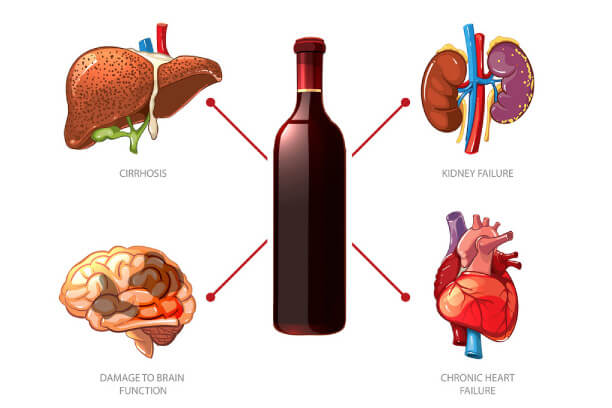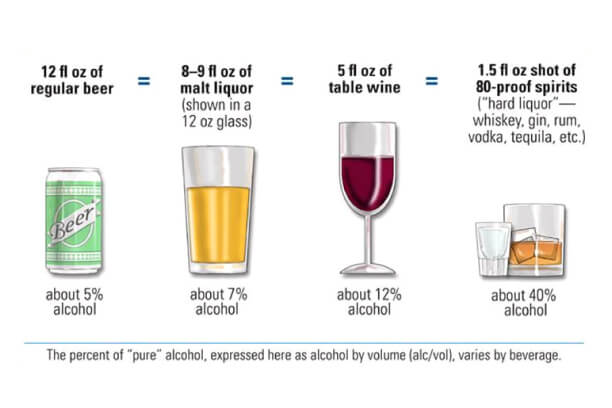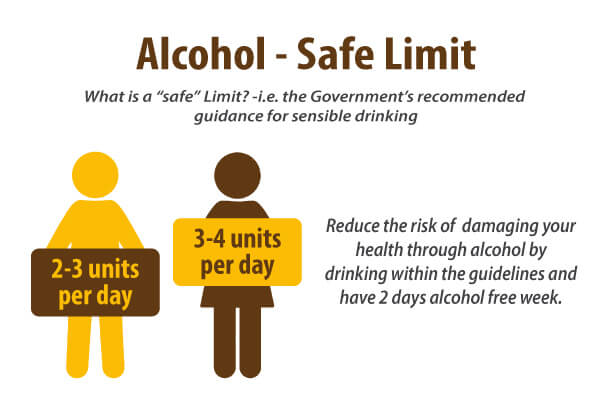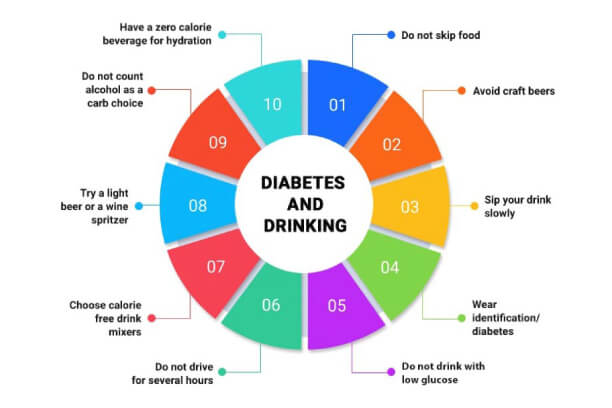Food & Nutrition, Health, Lifestyle, Myths & Facts, Nutrition
5 Common Impacts of Alcohol on Our Body | Alcohol & Diabetes
Alcohol can be referred to as one of the luxuries that humankind has been dependable over the years. It is produced by fermentation of sugars found in foods by yeasts in the absence of oxygen that is anaerobically.
Well yes, different alcohol is prepared from different types of foods, the most commonly known is the wine which is made from the fermentation of grapes.
While alcohol has become a major part of us now, we ought to know the various effects of alcohol on our body.
Table of Contents:
- 5 Common Impacts of Alcohol
- Alcohol Content found in different types of Drinks
- How Alcohol Affects the Human Body
- Myth: I can’t drink alcohol if I have diabetes
- Common Symptoms of Hypoglycemia
5 Common Impacts of Alcohol
1. Hampering the Central Nervous System
The Healthline mentioned slurred speeches as the first sign of showing how alcohol impairs our central Nervous system. Moreover, continuous drinking of alcohol can affect memory power as well as emotional control of your brain.
2. Inhibiting the Digestive System
Alcohol consumption when goes up may create abnormal activation of certain enzymes in the pancreas leading to issues in digestion that further can become serious complications. Also, gassiness, diarrhea and bloating are common in alcoholic people.
3. Create Heart problems
Consuming alcohol in a chronic manner can lead to serious heart-related issues like irregular heartbeat, heart failure, strokes.
4. Reduces the body’s immunity skills
Alcohol can increases your body’s risk of carrying different diseases like tuberculosis, pneumonia as well as different types of cancers. It reduces the basic natural strength of the body to fight against diseases.
5. Changes in behaviour
One of the most apparent changes that alcohol brings in is the change of behaviour in the person. Sometimes it may lead to serious reasoning blackouts that may lead to bad behaviours with others impacting others lives as well along with yours.

Alcohol Content found in different types of Drinks
- Beer 2–6% alcohol
- Cider 4–8% alcohol
- Wine 8–20% alcohol
- Tequila 40% alcohol
- Rum 40% or more alcohol
- Brandy 40% or more alcohol
- Gin 40–47% alcohol
- Whiskey 40–50% alcohol
- Vodka 40–50% alcohol
- Liqueurs 15–60% alcohol
How Alcohol Affects the Human Body
The pathways of alcohol throughout our body
- Alcohol, when consumed within minutes, goes directly to the brain location, which hits our nerve cells that’s why the “effects” we observe in us.
- Alcohol through blood reaches the liver whereby a process the liver converts the alcohol into a non-toxic substance.
However, the liver can only act on the alcohol up to a certain limit at a certain time. If the consumption overflows the limit, the excess alcohol circulates within the body causing different effects.

Hence, the more the amount of alcohol consumed, the more the body is affected.
Note: If the amount goes beyond a limit, it may even bring respiratory breaks in the person leading to coma or even death.

Myth: I can’t drink alcohol if I have diabetes
You can most certainly drink alcohol with diabetes.
Our Expert Nutrition Coach, Swati Patwal recommends that the key, just like many other things, is to do so in MODERATION, which is also supported by different studies [2].
Alcohol has effects on every organ in the body and these effects depend on the blood alcohol concentration (BAC) over time. Rules to keep Alcohol check when you’re Diabetic.

There are new studies that show that with a few dietary modifications, a diabetic patient can be allowed a drink with meals, which is usually not at all supported.
A diet has to be customized for a particular patient with modified carbohydrate content that will lower the glycemic complications that are otherwise found in Diabetic patients who consumes alcohol. [1]
Do’s and Don’t on Alcohol Consumption
- Do not drink more than two drinks a day for men
- Do not drink more than one drink a day for women.
- Know how alcohol affects your body and hence always be on the safer side.
- Don’t compare your Alcohol intake level with someone else, everyone has different body conditions.
- If you are a Diabetic, your alcohol can bring turbulence to your blood glucose level. So, the best recommended time is to consume Alcohol with a meal. And if not, go for small bites of cabs throughout the evening to keep the glucose level better.
- Avoid Alcohol before your meals.
- If you are a Diabetic, find some bedtime snacking because the alcohol may bring don your blood glucose to such a level that you may not know while sleeping. So the snacking will help you keep up the carbohydrates.
- Go for blood sugar tests often.
Should I test my blood sugar before consuming alcohol?
Yes. Diabetic people are usually under controlled glucose levels due to their medication and consumption of alcohol may further lower the blood glucose level which can bring a dangerous situation of hypoglycemia.
6 Common Symptoms of Hypoglycemia
- Drowsiness
- Memory loss
- Blurred vision
- Unsteady movements
- Passing out
- Slurred speech
Diabetic Hypoglycemia can even lead to serious damages like seizures and unconsciousness. Therefore it is always recommended by our expert nutritionists to keep monitoring your blood sugar levels routinely if you are a Diabetic and consuming alcohol. And if any emergency is observed, you should contact a Doctor immediately.


i am interested your all topic
Thank you for your feedback. Keep following our blog for more such articles.
Great article and very helpful… People are having success reducing alcohol consumption using this …
Hi, Thank you for your feedback.